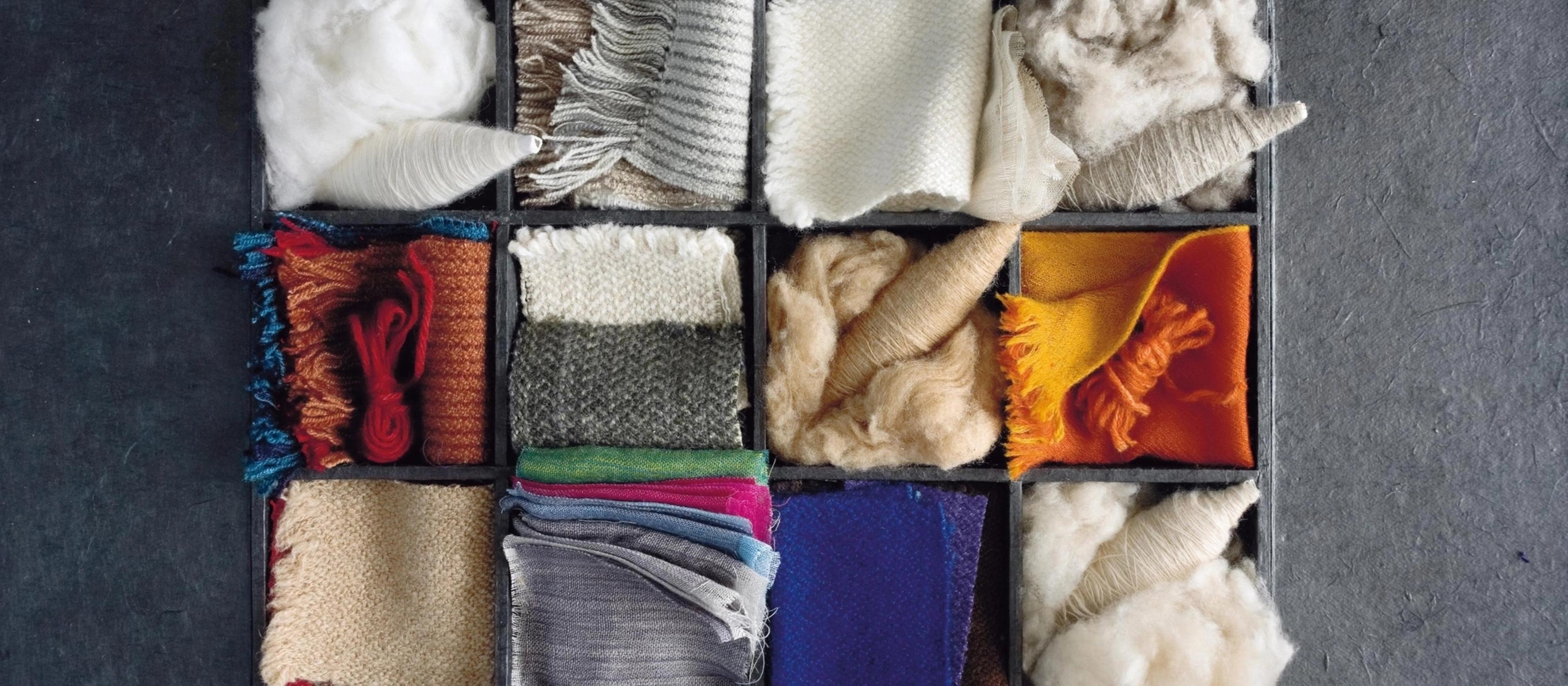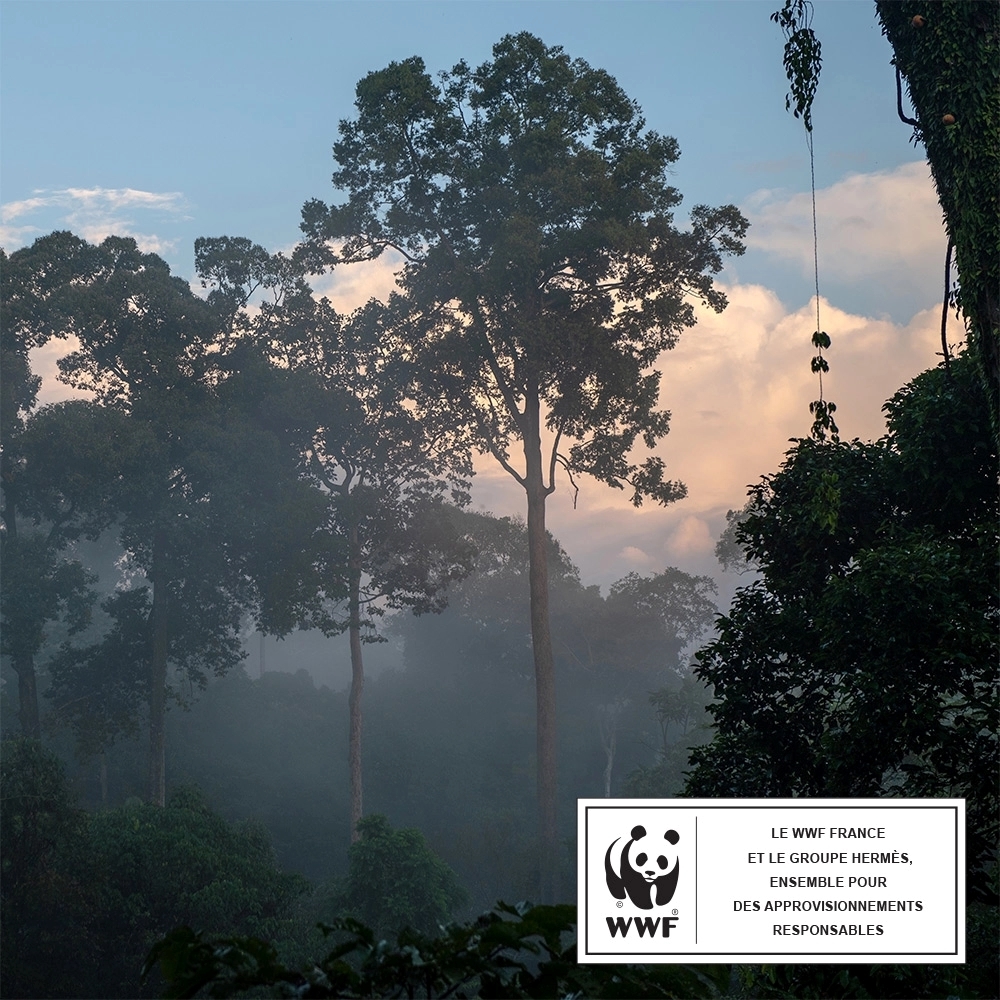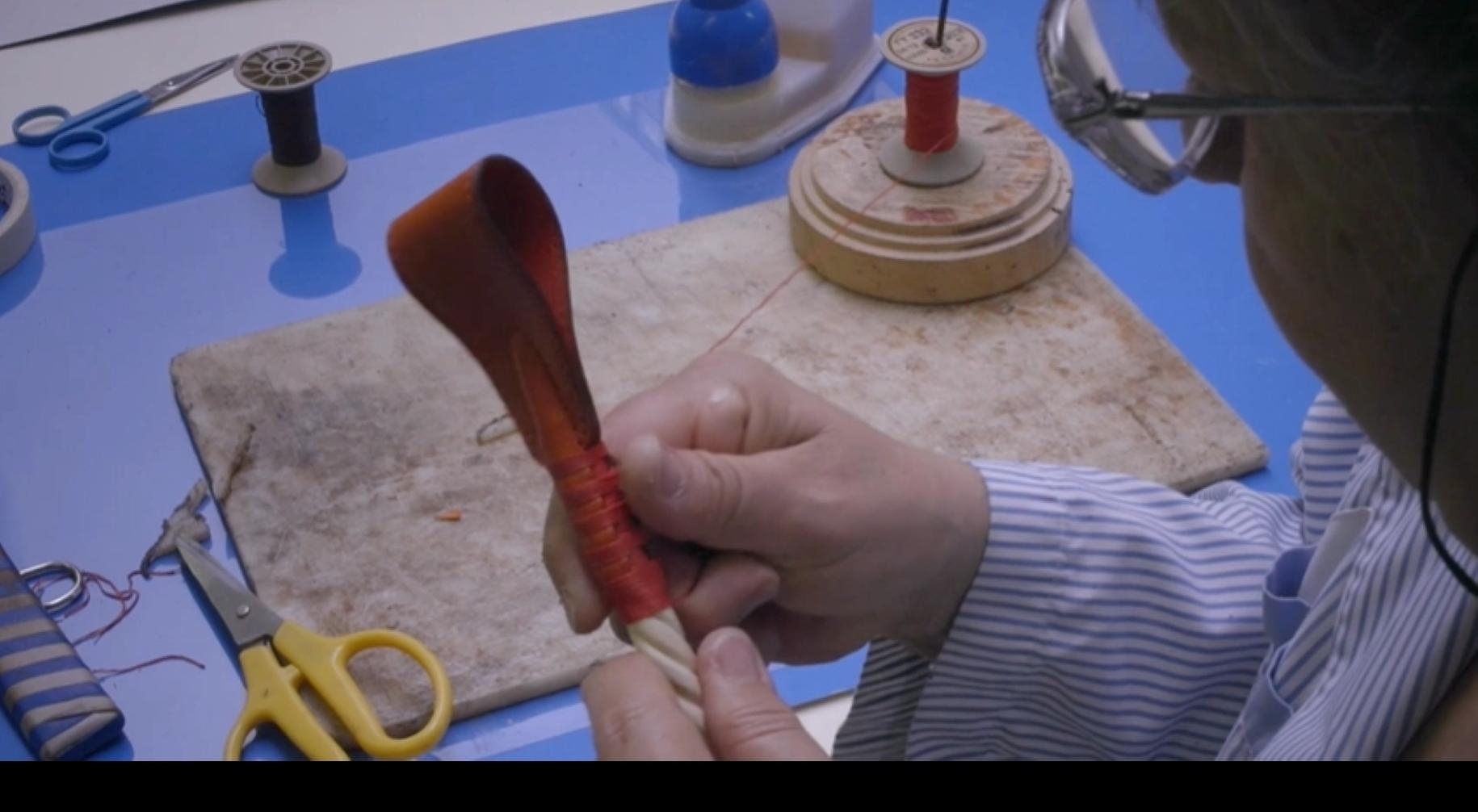
Materials and supply chains
« We are committed to making continuous progress with our suppliers and partners for the long-term development of our supply chains, in particular with regard to climate and biodiversity issues »
Axel Dumas, Executive Chairman of Hermès
Ambition
Sustainable development at Hermès rests on the use of exceptional raw materials of natural and renewable origin, which enable it to make sustainable objects.
Hermès uses, respects and preserves the finest materials, secures the sources of its supplies and seeks to manage their impact on biodiversity by going beyond compliance with environmental, ethical and social regulations and by contributing to the future availability of these resources.
The group operates according to a unique integrated business model within its sector, where products are manufactured in France. In 2024, 55% of products are made in exclusive internal workshops, and 74% are manufactured in France.
Hermès strives to provide lasting assistance to its partners, with whom it maintains balanced, long-term relationships, offering its support while demanding high standards. It ensures that partners share and respect its social, environmental and ethical ambitions, in particular with regard to human rights, fundamental freedoms, employment conditions (hygiene, health, safety, working hours, wages, etc.) and animal welfare. This also concerns suppliers’ own suppliers and subcontractors.
Key figures 2024
Organisation
Governance is carried out by two members of the executive committee: the Executive Vice-President of Corporate Development and Social Affairs and the Executive Vice-President in charge of Manufacturing Division and Equity Investments.
The roll-out of group procedures is organised by the purchasing departments of the company’s métiers and entities, to ensure that the most relevant and practical measures are put in place. Two group departments, a direct purchasing department, which mainly concerns manufacturing operations, and an indirect purchasing department, supervise the system. The audit and risk department and the legal department carry out training and monitor these activities.
The Purchasing Council, which meets quarterly, arbitrates on key supply chain management issues, particularly in relation to purchasing and supplier risk mapping, procedures for sensitive countries and supply chain analyses. It is composed of three members of the Executive Committee, the Audit and Risks Department, the Direct and Indirect Purchasing Departments and the Industrial Transition Department.
The direct and indirect purchasing departments are responsible for implementing the responsible purchasing policy published in 2024 and other measures such as the supply chain brief, the CSR brief, or the supplier code of conduct.
Exceptional raw materials
The quality of the raw materials used is the first guarantee of the durability of Hermès objects : most of the materials used by Hermès come from natural and partly renewable sources, such as skins from farmed animals or for the main textile materials and wood. The house's historical preference for leather and natural fibers avoids the use of synthetic and non-renewable materials derived from petroleum.
The sustainability of Hermès' activities relies on its ability to secure the availability of the exceptional raw materials used.
Supply chain certification
In order to constantly align itself with the most demanding certification standards, and to gradually support its métiers in the sourcing of significant volumes of certified raw materials, Hermès has extended its objective of certification of the supply chains. These certifications include environmental requirements (related to water, for example) and social requirements (related to working conditions, for example).
| Animal supply chains | Types of certification |
|---|---|
| Leather | LWG Certification |
| Silk | GOTS Certification |
| Wool and fur | RWS/RAS/RMS/SFA Certifications |
| Feather/down | RDS Certification |
| Mother‑of‑pearl/pearls | ASC/MSC Certifications |
| Precious leathers |
IFCA certification for crocodile farms SAOBCS certification for ostrich farms LPPS certification for the lizard sector |
| Plant-based supply chains | Types of certification |
|---|---|
| Cotton | GOTS Certification |
| Linen | "Master of Linen" Certification |
| Cellulosic fibres | Sources of fibres FSC |
| Wood | FSC Certification |
| Rubber | FSC and GOLS Certifications |
| Palm oil derivatives | RSPO Certification |
| Minerals supply chain | |
|---|---|
| Gold / Silver / Gems | RJC Certification |
Supplier support
Within its supply chain, Hermès seeks to contribute to the deployment of responsible practices in sustainable development by sharing its ambition and commitments with its partners, supporting them in a continuous improvement approach.
The Responsible Purchasing policy is coherently integrated within a set of key documents related to Hermès' Corporate Social Responsibility :
Purchasing policy
In December 2024, Hermès published its Responsible Purchasing policy, formalizing the group's commitments on four pillars: ethics and fundamental rights, environment, partnership relations, and local and solidarity purchases. Hermès expects all its partners to respect and share similar ambitions within their own value chain.
This Responsible Purchasing policy includes risk management related to supply chains and resources through the implementation of supply chain briefs and CSR briefs to control the entire value chain and co-create action plans for sustainable development. These documents are intended for all suppliers and manufacturers involved in the supply of Hermès' trades. All these documents are available on the group's website.
Supply chain brief
The supply chain brief is a roadmap for the group, co-constructed by the trades, the sustainable development department, the direct purchasing coordination department, and with the support of an independent expert firm. It is intended for all suppliers. It allows Hermès to share its requirements for ethical and sustainable supply chains and the protection of people, animals, and the environment. The brief outlines four principles of responsible purchasing: transparency, high standards, kindness, and fairness. This supply chain brief then specifies, for each supply chain, the prerequisites and certification recommendations where applicable, points of attention, and critical points. The latest version was published in December 2024.
By the end of 2023, 74 supply chains had been examined, representing 99% of the revenue with the support of expert firms, and a group policy was formalized around general and specific principles, including certification objectives for most supply chains according to the best existing standards by 2030.
CSR Brief
The CSR brief is a policy formalized since 2021, which specifies the house's objectives and its expectations towards suppliers on nine themes, including circularity. Supplier audits are conducted with internal resources and independent external firms to verify, among other things, the compliance of their operations with the group's expectations.
Supplier code of conduct
Hermès systematically requests a formal commitment from its suppliers to comply with their social, regulatory and environmental obligations. This commitment Cet engagement is formalized by signing the Supplier Code of Conduct, which clearly and detailedly presents commitments regarding health and safety, working conditions, and respect for working hours, and also refers to international standards, particularly ILO conventions. Suppliers commit to declaring all their subcontractors in an appendix to this code and to implementing vigilance and control measures to ensure that their subcontractors fully comply with their obligations regarding human rights and health and safety.
Learnings
The group's policy is based on a commitment to train buyers on CSR topics, particularly through the following training programs:
- Excellence Achats Hermès: a three-day training, with one full day dedicated to CSR, responsible purchasing, and supply chain management.
- Human Rights, Fundamental Freedoms, and Social
- Carbon Footprint, developed and delivered by an expert third party.
- Environment, Hygiene, and Safety
The company provides CSR-themed training to its suppliers, with the aim of supporting them to the highest standards, in addition to informal awareness-raising actions:
- Carbon footprint training in the form of a webinar developed by an expert third party.
- Organization of "supplier days" on the theme of sustainable development

In 2016, Hermès signed a partnership with the WWF France to strengthen the responsible management of its supply chains. For the past eight years, different supply chains, such as precious hides, cashmere and wood, have undergone specific reviews.
In addition, the group is working with a number of independent and specialised experts and associations to improve its supply chain management.
An inspiring initiative

ESAT les Micocouliers, the exclusive supplier of Hermès riding crops :
Since 1991, Hermès has been entrusting its entire production of riding crops, dressage sticks and whips to ESAT les Micocouliers, in Sorède (Pyrénées Orientales). In this establishment, which provides employment to people with mental disabilities, some 30 craftspeople perpetuate the tradition involving the braiding of hackberry – a strong and supple wood. At the foot of the Albères mountains, they work with the same dedication as the hundreds of villagers who carried out that work decades before them.
With the advent of the motor car, Sorède’s famous riding crops and whips became focused on the equestrian world and the circus universe. Production had almost disappeared when a regional non-profit organisation had the idea of reviving it in the late 1970s through a center dedicated to providing work to disabled people. The savoir-faire and the objects it generate have thus survived the passage of time and are sold worldwide. Hermès’ initial trade relations with ESAT les Micocouliers date back to the 1980s. The House is now one of its main clients.
Discover our collection Footsteps accross the world
Our policies and publications
To go further and discover our main sustainable development policies and our recent publications
